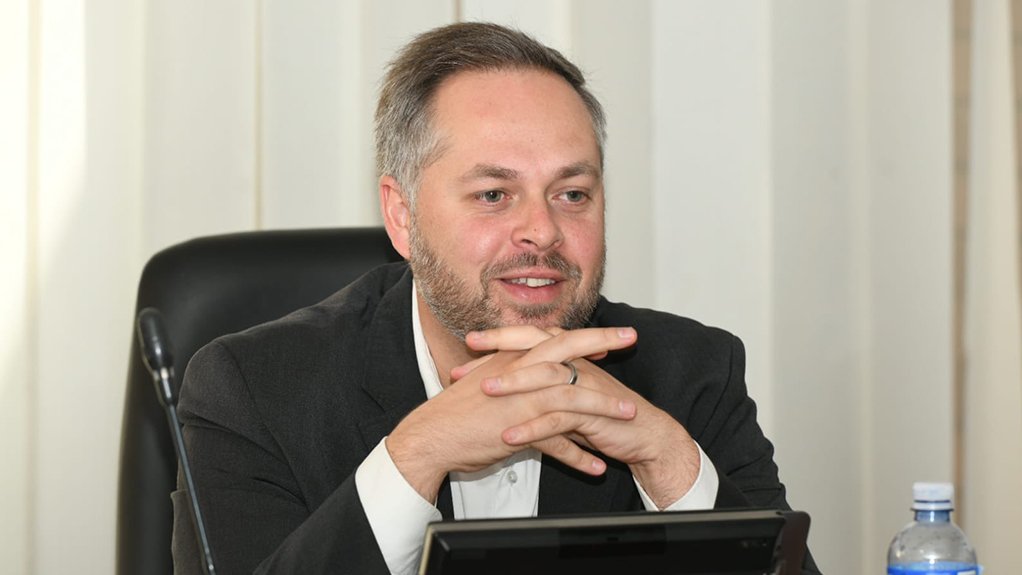South Africa’s business-friendly ruling coalition risks being disrupted by political infighting in the country’s economic heartland, said a cabinet minister from the second-biggest party in the government.
The nation is led by a coalition of 10 parties, dominated by the African National Congress (ANC) and the Democratic Alliance (DA). Since the so-called government of national unity was formed in June, the DA has accused the ANC of sidelining it from the Gauteng provincial administration and helping oust the DA mayor in the Tshwane municipality, which includes Pretoria, the capital.
“It’s an act of profound bad faith on the part of the ANC. They can talk about different spheres of governments, different agreements, but they know very well what they’re doing,” Leon Schreiber, a DA member and home affairs minister, said in an interview in Cape Town on Tuesday. The actions of the Gauteng ANC present “the single most urgent threat to the GNU,” he said.
A surge in positive sentiment and a rally in South African assets in recent months is premised on a belief by investors that the coalition will help President Cyril Ramaphosa, the ANC’s leader, push through a raft of economic reforms that are opposed by factions within his party. The new administration has made some headway, easing visa requirements, laying out plans to bring in private investors into electricity transmission and ports, and attempting to repair frayed relations with the US and other major trading partners.
The ANC was forced into the country’s first national coalition government since the 1990s after its share of the vote slumped to 40% in the May 29 elections from 57.5% five years ago. The co-governance accord didn’t extend to the local administration level, and various tie-ups have been agreed in municipalities where no party commands an outright majority.
The Gauteng ANC, led by Panyaza Lesufi, appears to have gone against Ramaphosa’s wishes by offering the DA just three seats in his 10-member executive — an allocation the DA said didn’t reflect its share of the vote and was unacceptable. The president told lawmakers last week that he favours the national coalition being extended to provinces and that kind of arrangement needs to be discussed at party level.
“Rogue elements going against the GNU are deliberately creating a toxic environment,” Schreiber said.
Lesufi and Mahlengi Bhengu, spokesperson for the ANC, didn’t answer calls to their mobile phones or return text messages seeking comment.
Both Johannesburg and Pretoria have been governed by constantly shifting municipal coalitions in recent years. The provision of basic services has suffered and Johannesburg has a $12-billion maintenance backlog. In Tshwane, the DA had to replace its own mayors three times since the ANC lost outright control of the city in 2016.
That dysfunction is fuelling expectations of a shakeup in local government elections in 2026, which along with ANC internal elections the next year could threaten the GNU’s stability, according to the 35-year-old minister.
“The GNU will fall not because of something the DA does, it will be because of the rogue elements in the ANC if it does fall,” Schreiber said.
Ramaphosa, who’s second and final term as ANC leader ends in 2027, has pinned his legacy on the success of the GNU.
“There may be headwinds,” he said in an October 17 speech. “But in challenges lie opportunities.”
While the coalition faces other challenges — most notably DA opposition to ANC plans to scrap private healthcare and push through a law that could prevent schools from teaching in Afrikaans — Schreiber said the “collegial” relationship between cabinet members from different parties could see compromises being made.
EMAIL THIS ARTICLE SAVE THIS ARTICLE
To subscribe email subscriptions@creamermedia.co.za or click here
To advertise email advertising@creamermedia.co.za or click here











